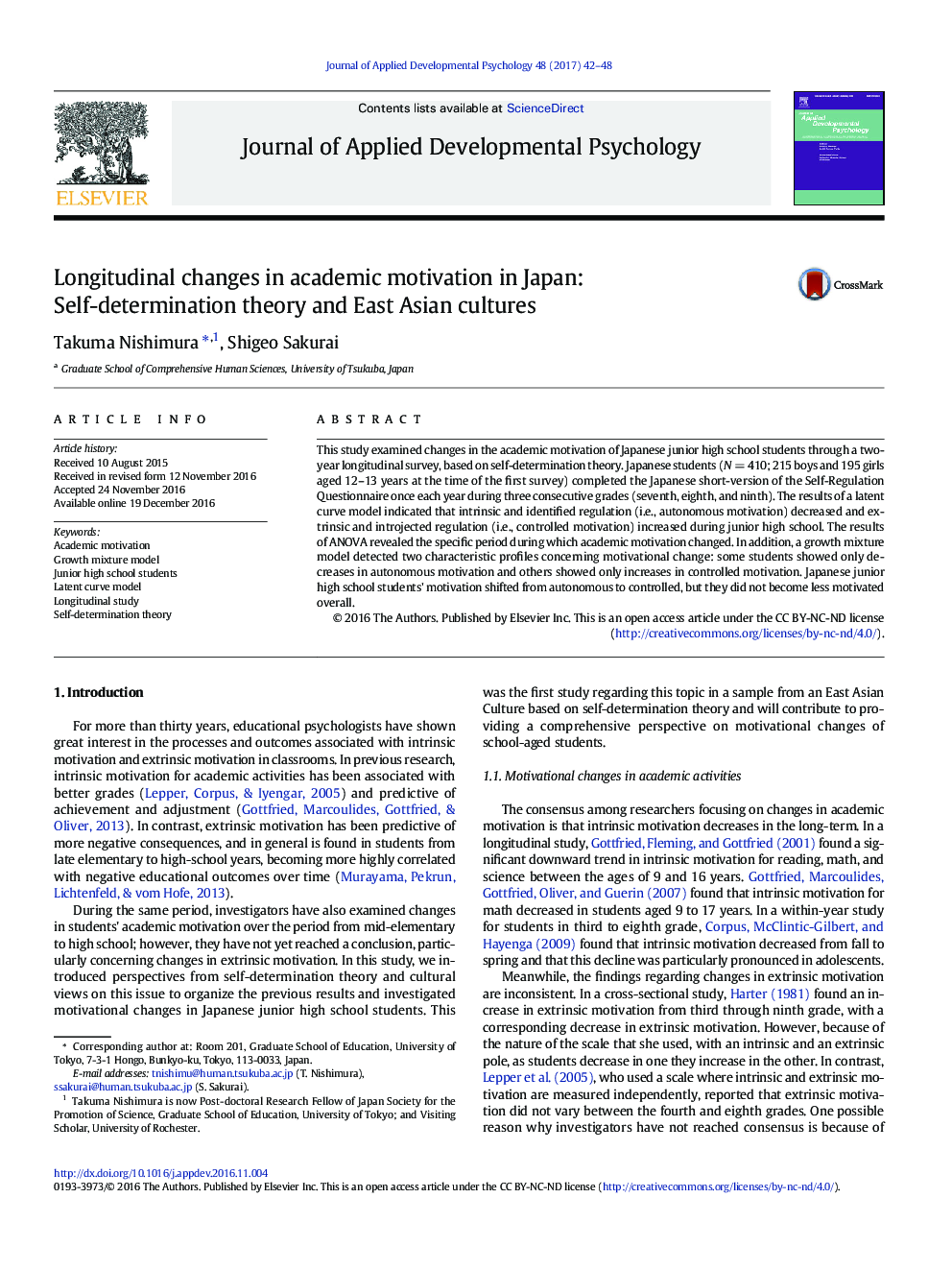| Article ID | Journal | Published Year | Pages | File Type |
|---|---|---|---|---|
| 4939180 | Journal of Applied Developmental Psychology | 2017 | 7 Pages |
â¢Academic motivation was assessed in 410 Japanese junior high school students through a two-year longitudinal study.â¢Autonomous motivation decreased during junior high schoolâ¢Controlled motivation increased during junior high schoolâ¢Students' academic motivation shifted from autonomous to controlled, not became less motivated.â¢This study showed a limitation of previous research to apply their results to other sample, particularly in Japan.
This study examined changes in the academic motivation of Japanese junior high school students through a two-year longitudinal survey, based on self-determination theory. Japanese students (NÂ =Â 410; 215 boys and 195 girls aged 12-13Â years at the time of the first survey) completed the Japanese short-version of the Self-Regulation Questionnaire once each year during three consecutive grades (seventh, eighth, and ninth). The results of a latent curve model indicated that intrinsic and identified regulation (i.e., autonomous motivation) decreased and extrinsic and introjected regulation (i.e., controlled motivation) increased during junior high school. The results of ANOVA revealed the specific period during which academic motivation changed. In addition, a growth mixture model detected two characteristic profiles concerning motivational change: some students showed only decreases in autonomous motivation and others showed only increases in controlled motivation. Japanese junior high school students' motivation shifted from autonomous to controlled, but they did not become less motivated overall.
